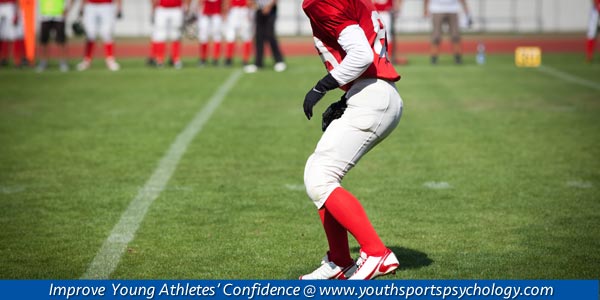Ways to Build Sports Kids’ Confidence
Do you ever wish your kids had the opportunity to communicate with their coaches or review their skills outside of practice so they could improve faster?
If you had this opportunity, and were careful about helping your kids use it in ways that were fun, you’d likely see faster learning and a boost in kids’ confidence.
That’s the message from John Engh, COO of the National Alliance for Youth Sports (nays.org), which recently unveiled a cutting-edge program called ShapeStuff.
NAYS’ ShapeStuff is an online program that allows coaches to create skills-building exercises for their players to use between practices.
The goal is to reinforce and expand on what the kids learn in regular practice.
Engh’s program allows coaches to share with young athletes and their parents a combination of video clips and interactive exercises, including audio or video messages. The coach sends the exercises to players’ personal computers or cell phones.
For example, a basketball coach might coach share an audio or video clip about dribbling, and then provide kids with an interactive quiz asking whether they dribble with their palm or fingertips. The kids take the quiz by selecting either “palm” or “fingertips.” The quiz results give coaches additional information that allows coaches to address their individual needs.
“The coach knows which kids dribble with their palm. That’s great feedback,” says Engh.
Here at the Ultimate Sports Parent and Kids’ Sports Psychology, we think it’s a great idea to use such technology-based programs to help communicate with kids. The more they learn about how to improve their skills, and the faster they learn, the more confident they’ll feel.
As Engh says, young athletes develop confidence through repetition.
“So when it comes to game time they are confident enough to apply those skills and know those plays.”
But as we discussed in a recent interview with Engh, it’s important to ensure kids have fun when learning skills. You don’t want athletes to feel like they’re doing “homework,” Engh agrees. The ShapeStuff lessons are intended to be short; videos are one minute in length.
Not only should parents ensure kids have fun when reviewing skills. They need to make sure their young athletes don’t get overloaded with details about technique.
Engh agrees.
“As a coach, I have to tell myself, ‘These are the things that are most important.’ ShapeStuff allows you to reinforce those important things and not try to get to extra techniques that overload the kids.”
It can be tempting for parents to spend more time focusing on technique—especially before a game. This is common in highly motivated and perfectionist athletes who love to train.
However, there’s a downside to all this training. These athletes often over-analyze their technique at the wrong moment—during competition. Some athletes might freeze up or over-think their skills.
We’ve stressed that during competition, kids need to rely on their intuition and trust in the skills they have learned from practice. To perform their best, they need to perform relaxed and play with freedom.
As parents, you can help your kids avoid information overload.
- Use such online programs as they are intended to be used, in this case, in short sessions that reinforce what was learned in practice.
- Leave the practice on the field or court. Help young athletes become performers in competition.
- Tell them to be more reactive and to keep things simple. See the ball and hit it.
- Help them perform in the here-and-now. Tell them to get the job done without worrying about HOW to get the job done.
If you’d like to listen to the entire interview with Engh, visit Kids’ Sports Psychology: Sports Parent Radio Show
P.S. Want to learn more strategies for helping young athletes build confidence? At Kids’ Sports Psychology, we have many resources for parents and young athletes. Become a member today and help your kids improve their mental game and reap all the physical and social benefits of participating in sports: Kids Sports Psychology
Related Articles on Youth Sports:
- Helping Sports Kids Build Stable Confidence
- Building Sports Kids’ Confidence by Creating Community
- How to Build Confidence in Sports Kids When it Wanes
*Subscribe to The Sports Psychology Podcast on iTunes
*Subscribe to The Sports Psychology Podcast on Spotify
Help Young Athletes Boost Confidence in Sports!
Every day, we receive letters from parents like you who want their children and teens to excel in sports. However, these parents can see fear, doubt, and frustration on the faces of their kids who struggle with the “inner” game of sports. But these parents have no idea how to help their kids overcome the worries, expectations and self-defeating thoughts that prevent their young athletes from feeling confident and successful.
You can benefit from our 15-plus years’ of work in sports psychology and sports parenting research. Now, you can tap into our secrets to sports success through a cutting-edge, 14-day program that helps young athletes overcome the top “mental game” challenges that sports parents face—and the top challenges young athletes face.


